I Played Meat Bingo at a Century-Old Oregon Dive Bar
Credit to Author: Morena Duwe| Date: Tue, 21 May 2019 13:52:39 +0000
I’m sitting at a bar, drinking a beer, and my heart is beating like a war drum. The familiar aromas of sizzling burger meat and tater tots tickle my olfactory nerves, and my ears are at full attention. Every sense is acute as my eyes dart frenetically across the bar in front of me. I can’t miss anything—not one sight or sound—because there’s bratwurst on the line.
This is the most intense game of bingo I’ve ever played.
“O 69!” yells Simon Caron, the harbinger of bingo, with as much enthusiasm as Michael Buffer, a.k.a. the “let’s get ready to rumble” guy, announcing Hulk Hogan into the ring. I anxiously scan my eight bingo cards, but before I can mark O 69, a brusque female voice hollers, “Bingo!”
No bratwurst for me. What a disappointment.
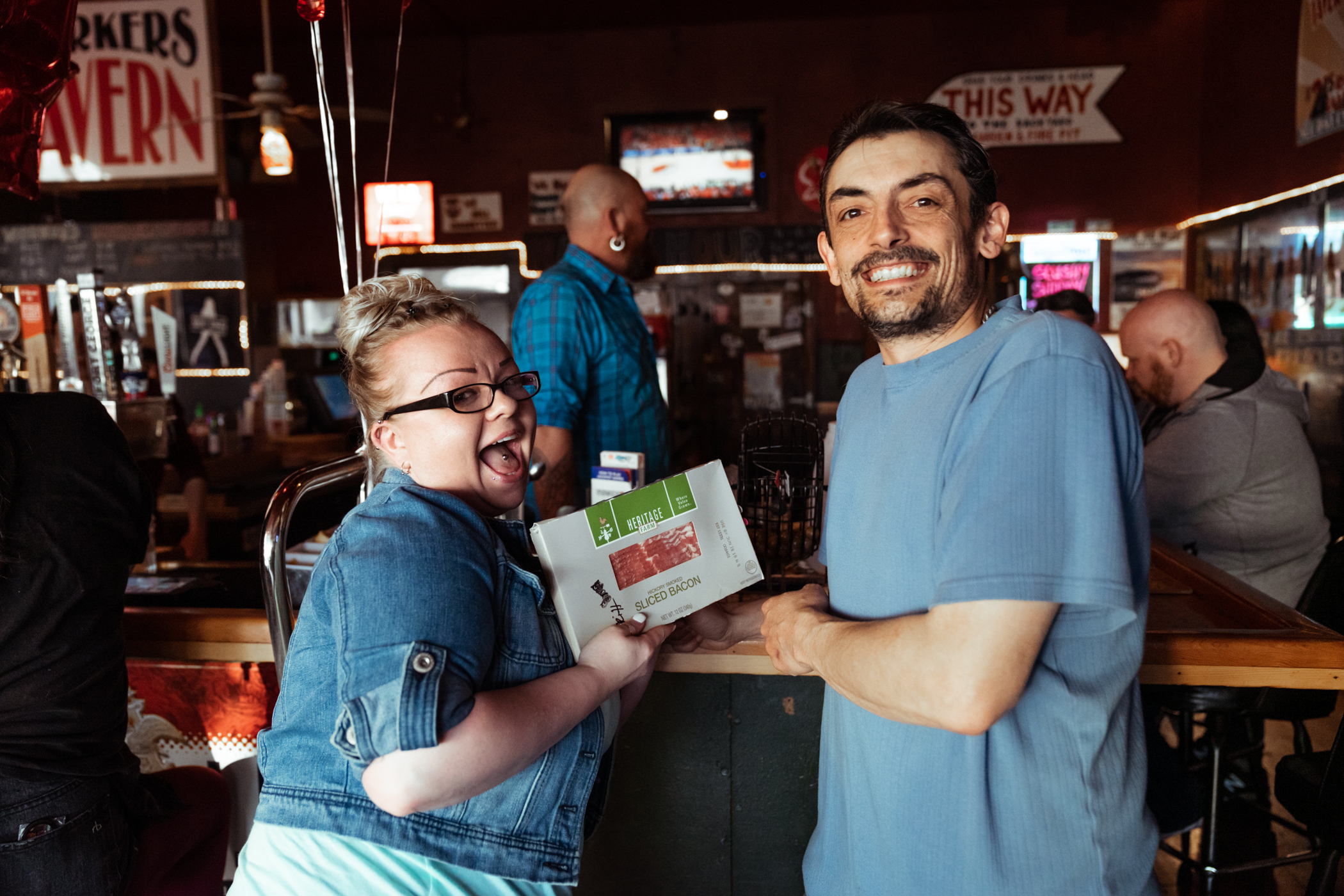
Every Sunday for the past 37 years, Meat Bingo has taken over Workers Tavern, a 93-year-old bar located in Astoria, Oregon, the oldest American settlement west of the Rocky Mountains. Lewis and Clark passed through Astoria en route to the Pacific Ocean; it was also a trading post for Native Americans and French Canadians, as well as a Socialist settlement for Finland, which was a part of Russia at the time. Located on the south shore of the Columbia River, it empties into the sea and is surrounded by verdant woodlands. Astoria must have been a heavenly finale for those who survived the perilous Oregon Trail.
While bingo is typically associated with church groups and retirement homes—a saccharine game to pass the time for those whose time is running out—this ain’t your grandma’s bingo. Well, there are grandmas present, but they are of the raucous, booze-swilling variety, the kind with raspy voices who spend many nights (and some mornings) sipping liquor and spinning yarns at a dive bar. They’re just the types you’d hope to find populating a nonagenarian establishment.
“This is my church on Sunday,” says Meat Bingo regular Brenda as she sets up her bingo-card diorama. With a warm, coy smile stretched across her face, she sips on her second glass of whiskey. The bar always keeps a bottle of her favorite brand, Black Velvet, on hand even though she’s the only one who drinks it.
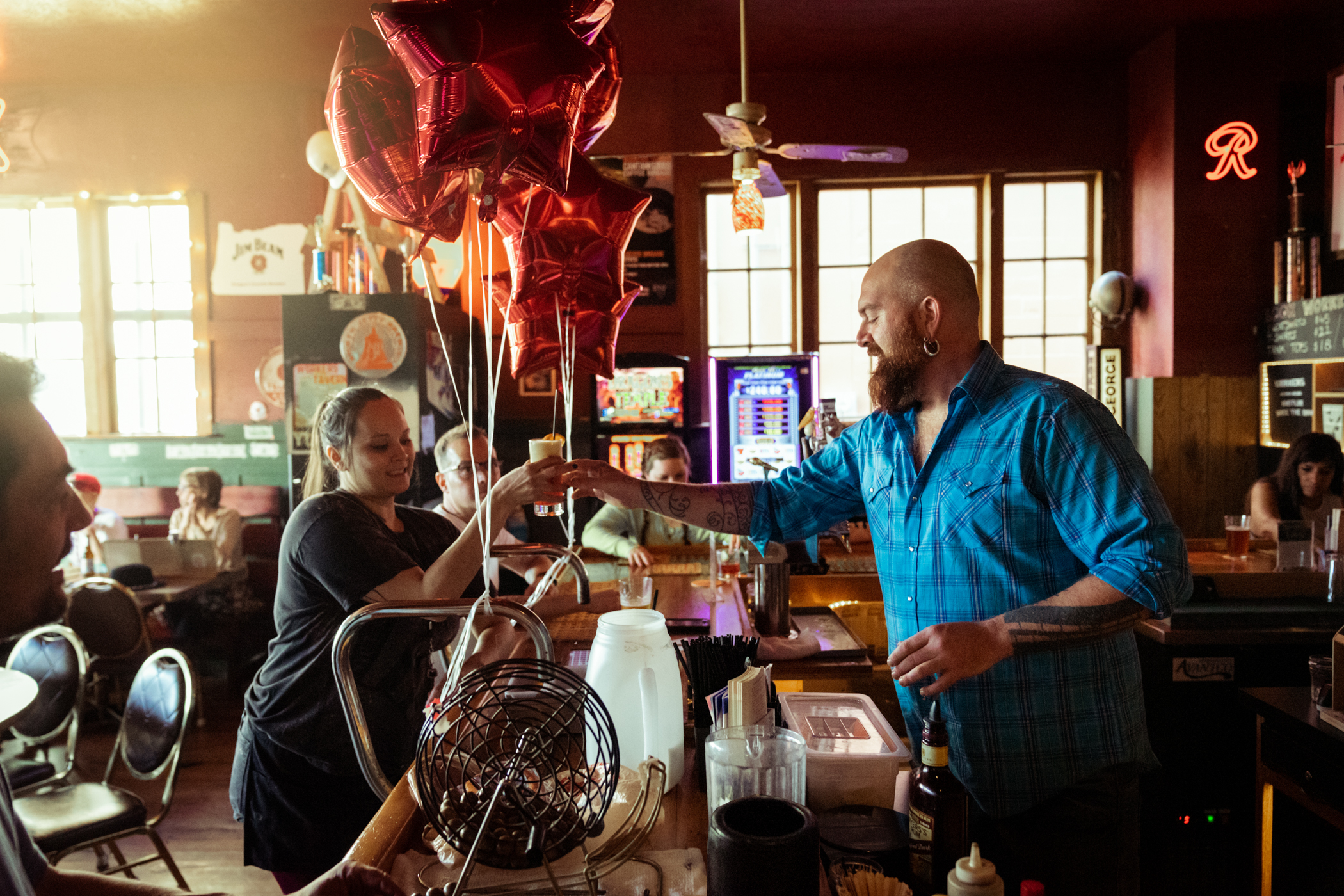
What really revs these patrons’ engines isn’t the comforting clack of wooden balls twirling in their basket, or even the victorious thrill of shouting “bingo,” but the prize: raw meat. Whether the reward is bratwurst, shrimp, salmon, or the ever-popular bacon, Astoria goes crazy for Meat Bingo. Though the event starts promptly at 6:30 p.m., vigilant players arrive as early as 4 p.m. to get a good seat.
Meat Bingo consists of several rounds of bingo with a different meat awarded for each round. That may seem unexciting for those used to the fast-paced life of a major metropolis, but in this small town, the excitement is palpable. The cult of Meat Bingo had me in its grip.
“Sometimes these balls actually come up with their own stories,” Simon explains. “Like you’ll get 36 and 34, which turns into ‘dirty sex’ and then ‘dirty whore.'”
Much of the vibe is curated by the aforementioned announcer Simon, who has his own vernacular shared only with those who frequent Meat Bingo. As a first-timer, I had to enlist the help of an adjacent Meat Bingo devotee who translated each inside joke shared between Simon and his loyal players. Some of the jokes were so nonsensical and longstanding that many—including Simon, who has been calling Meat Bingo for 12 years—don’t remember the meaning or origin. Dirty jokes are a fan favorite—and by jokes, I mean Simon just replaces the number 30 with the word “dirty.”
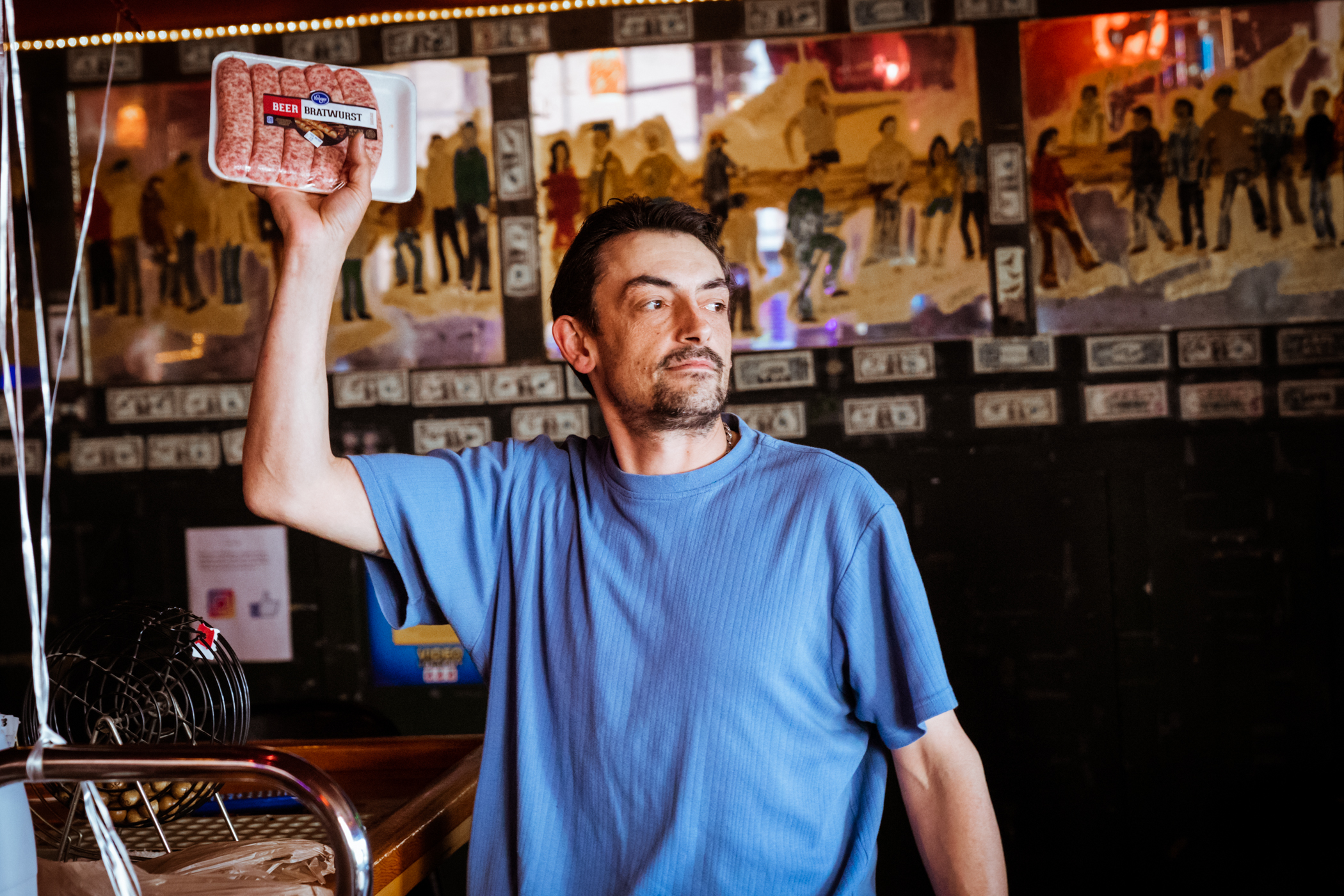
“Sometimes these balls actually come up with their own stories,” Simon explains. “Like you’ll get 36 and 34, which turns into ‘dirty sex’ and then ‘dirty whore’.. Other times, somebody will come in and crack a joke and it sticks. I’ll just be saying a string of jokes and words instead of numbers, and sometimes I forget people don’t get it.”
Meat Bingo celebrates the simple joys in life, like free meat, inside jokes, and getting wasted with friends on a Sunday. But that’s not the only thing about Workers Tavern that conjures sentiment within the community. The bar itself is a treasure trove of divey splendor—a historic collection of stories and people who are painted into a mural on the wall, with one medium squirted from a paint tube and the other drawn from the contents of a tobacco spittoon. Every patron is a character in the Workers Tavern tale, but some characters pass into the realm of legend.
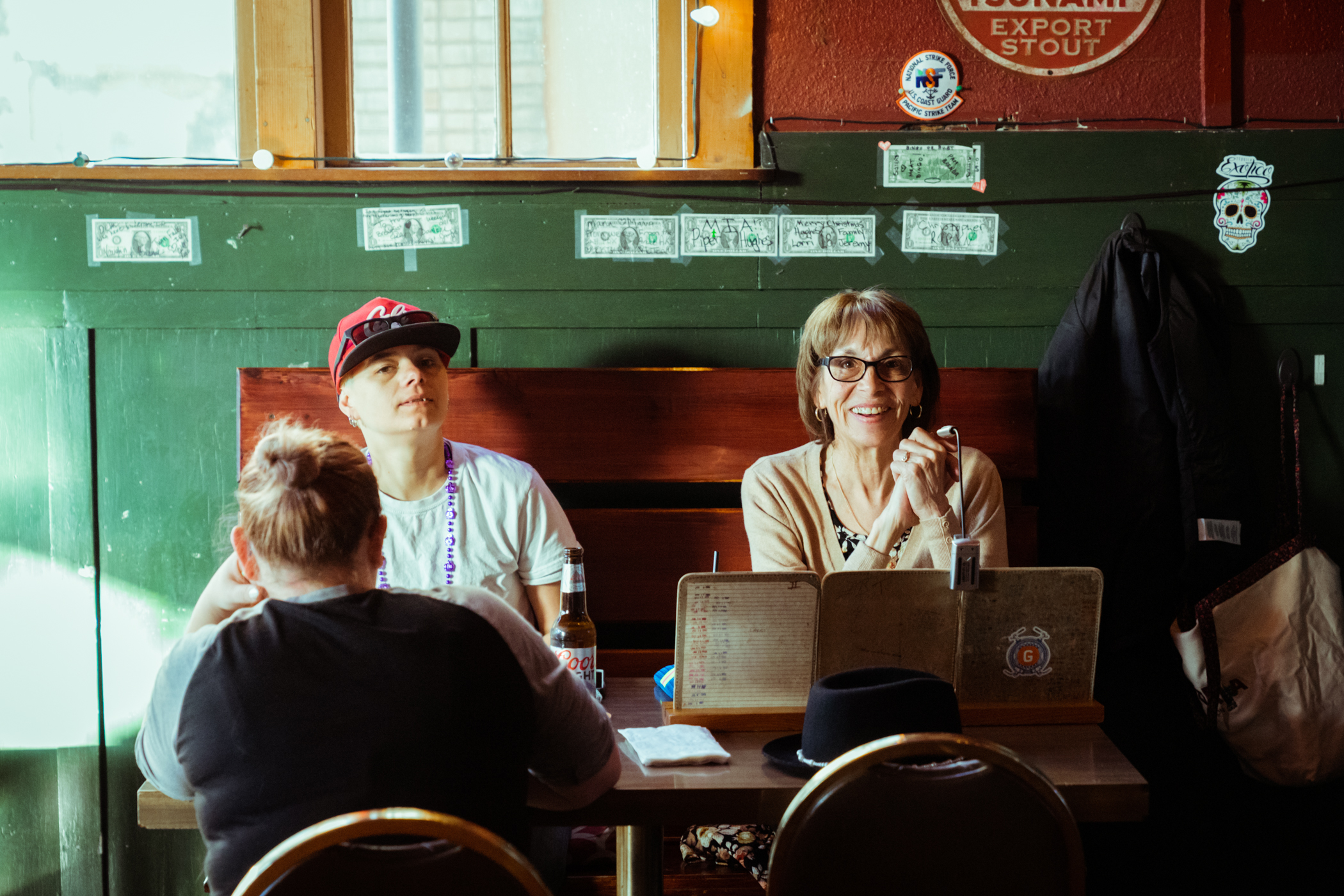
“There used to be an old man who sat right there,” Simon says as he points to an empty seat at the bar. “His name was Ron and he was never not there… You’d have to move stuff around for Ron. He was an old man with wisdom. One day he had passed away and [for] a while, we didn’t let anyone sit in his seat.”
Purchased in 2017 by author and real estate rehabber Diana Kirk, Workers Tavern was originally founded in 1926 by Russian socialists William and Daisy Still. Known for its rowdy gambling parties during the Prohibition era, Workers became a hub for fisherman, loggers and debauchees. These hedonistic bacchanals were sometimes so wild that they were written about in the local paper.
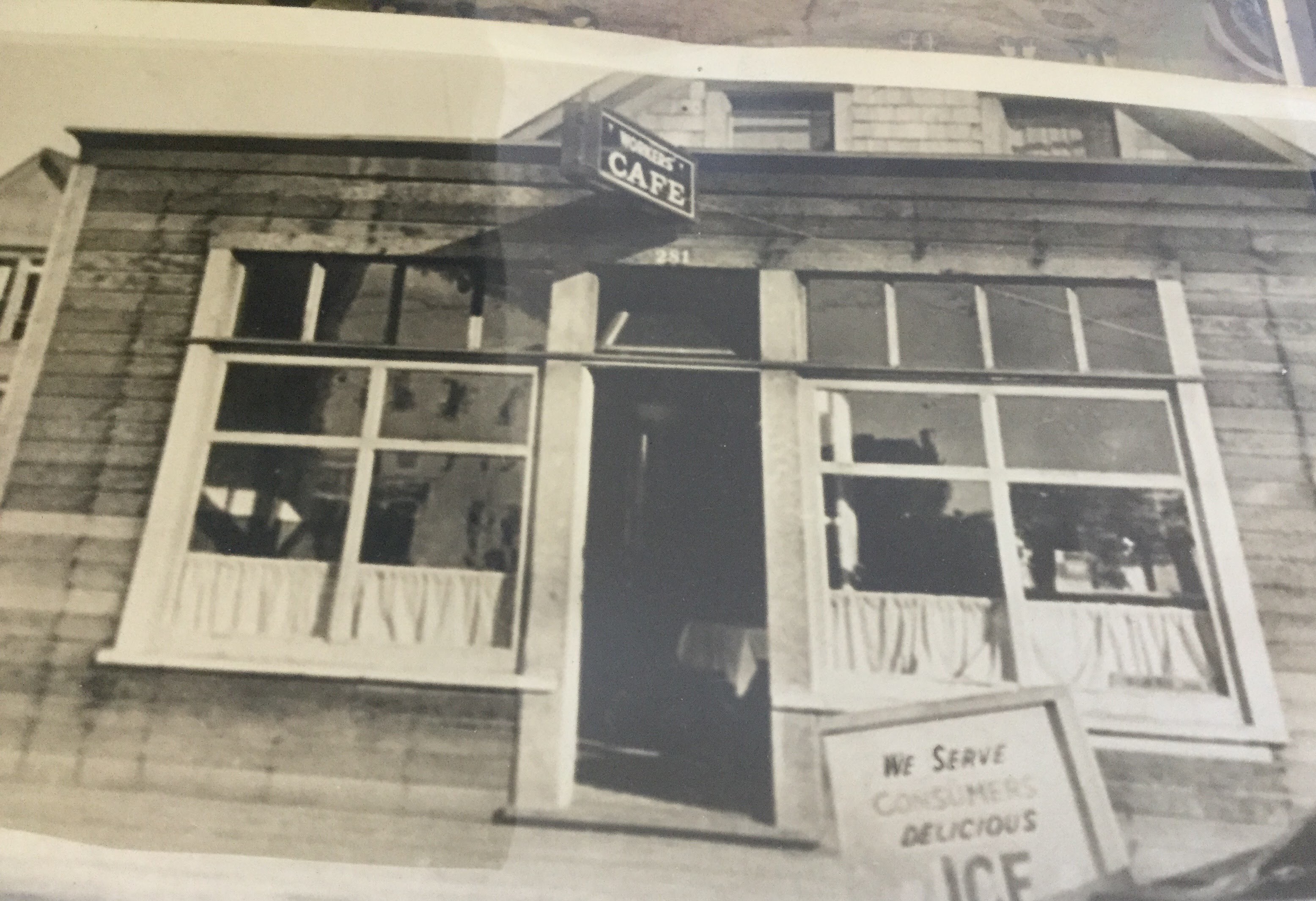
Soon after acquiring Workers, Kirk began to uncover the bar’s history, which she quickly discovered was hazy. Due to the Astoria fire in 1922, which destroyed up to 30 blocks and left 2,500 residents without homes, many historical records were lost. However, Workers Tavern remained untouched by the conflagration, and though the only written record of the bar’s existence—discovered by Kirk in an old phone book—was in 1926, she had the building appraised by an architectural historian that placed its construction as early as 1905.
“It had a reputation for being this old bar and the reviews on it were great when I bought it… except for it actually had gone past divey,” Kirk describes over a Workers breakfast of Spam and hash browns. “There’s some reviews out there that said you’d sit on rat droppings when you sat on a chair, so it was going a little too far.”
The town’s animosity towards Kirk climaxed last summer when a group of locals created a bumper sticker that said: “Make Workers Tavern great again, fuck Diana.”
Though it was beloved by the community, the previous owner had left the Tavern in disrepair. With a rat infestation, leaky plumbing, and an electrical system that hadn’t been updated since the 1930s, the bar was on the verge of foreclosure. Kirk swooped in and renovated the building while trying to keep as much of the original infrastructure intact as possible. Though she had both the bar and town’s best interest in mind, many of the locals did not see it that way. The fact that she was an Astoria transplant from San Francisco didn’t help, either.
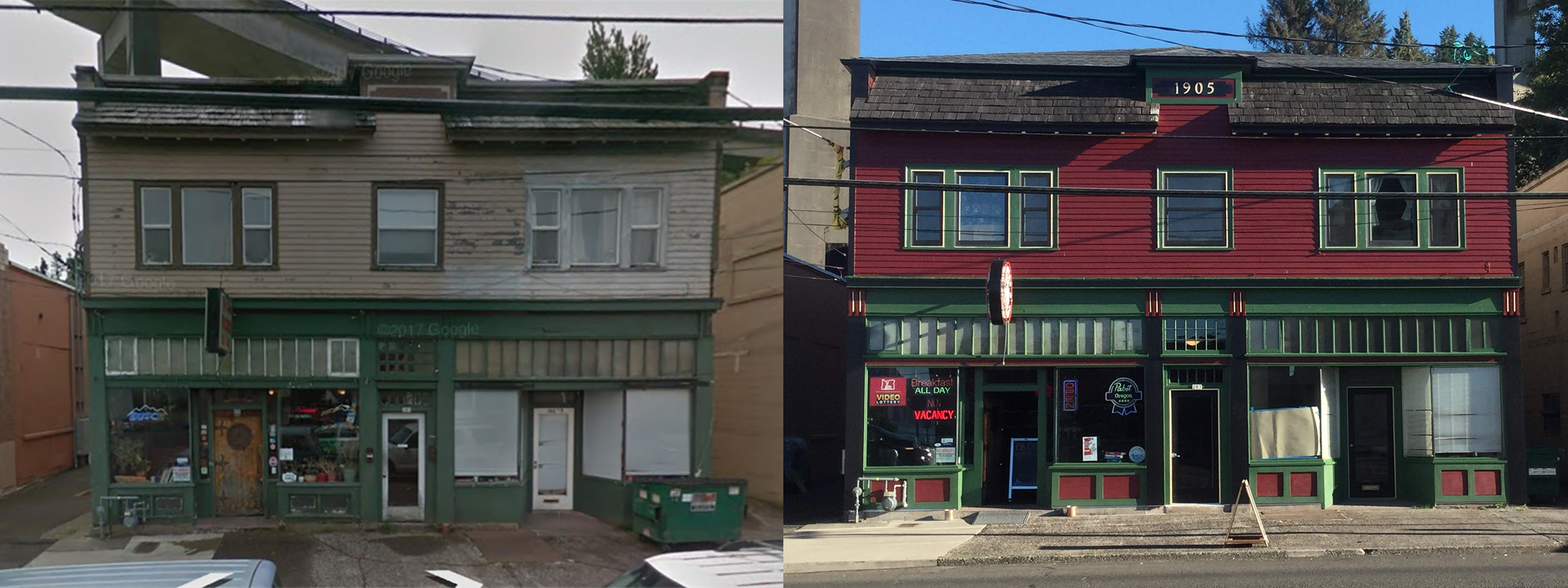
“Astoria’s changing, and I really want the historical aspect of this bar to be part of it going forward,” Kirk says. “Even though a lot of people aren’t going to like it—people don’t like change in general—the entire West is changed so I don’t know how you can keep a business economically viable and not change.”
The town’s animosity towards Kirk climaxed last summer when a group of locals created a bumper sticker that said: “Make Workers Tavern great again, fuck Diana.” As an author, Kirk has weathered her fair share of criticism, but what really upset her was that her three children had to be exposed to it. This was not their battle, yet they had to fight it, too.
According to Kirk, she was able to defuse the situation as much as possible, choosing benevolence over retaliation, and slowly the blazing anger was reduced to embers. There is still a lingering enmity whispered about amongst locals, and though they support the bar, some do not support Kirk.
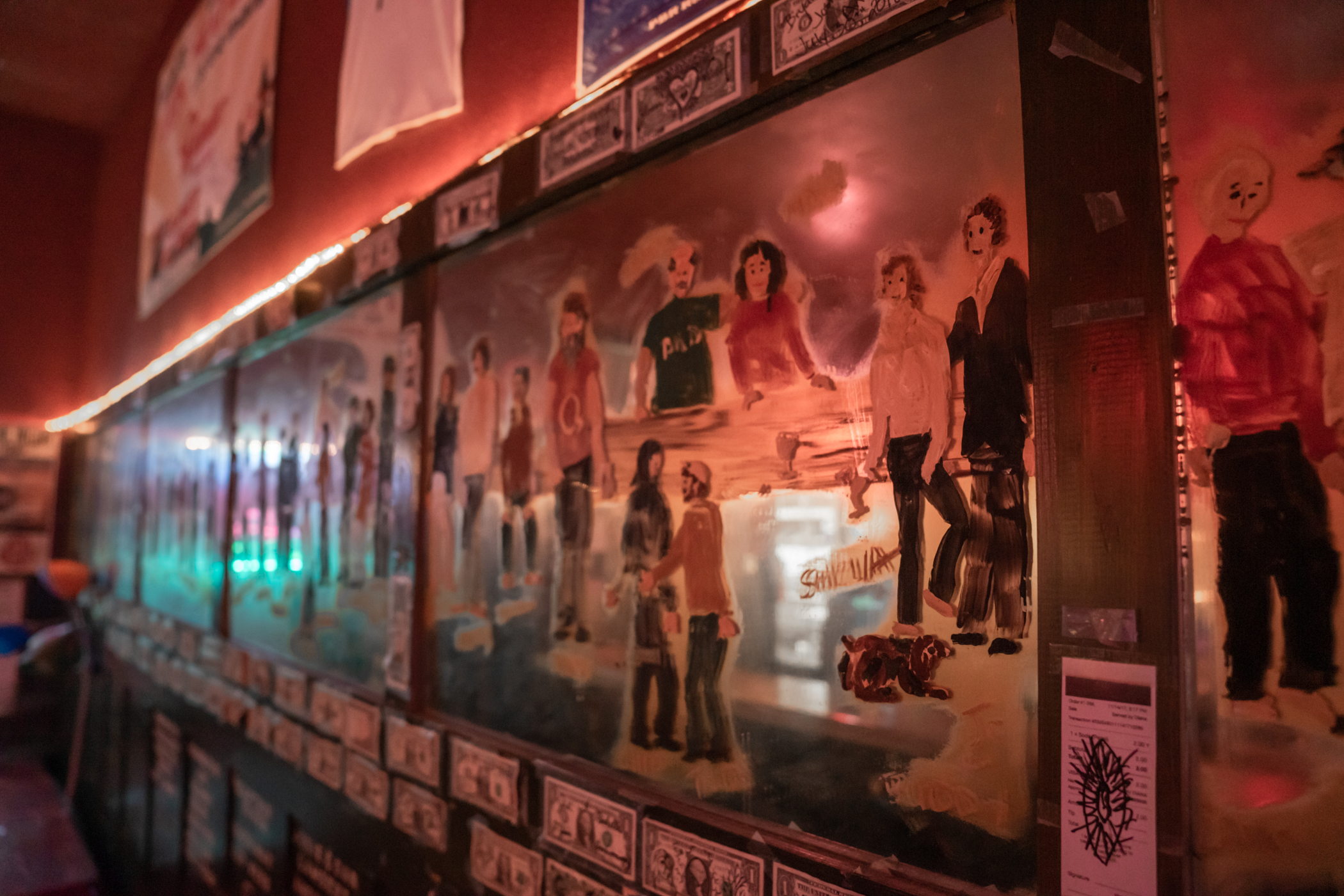
While it is difficult to extract the truth from small town gossip, especially as an outsider myself, it appears that those who work at and visit Workers Tavern don’t seem to allow the rumors to interfere with their love for the bar. And whether you’re a local or a tourist, pro-Diana or anti-Diana, the squabble certainly has not stopped patrons from enjoying one of Astoria’s most cherished pastimes: Meat Bingo. And as long as the welcoming, raspy, hard-working, down-to-earth, people of Astoria continue to visit Workers Tavern, it will always be great.
I never did win that juicy bratwurst, but unearthing the bar’s juicy history was prize enough for me, anyway.
This article originally appeared on VICE US.